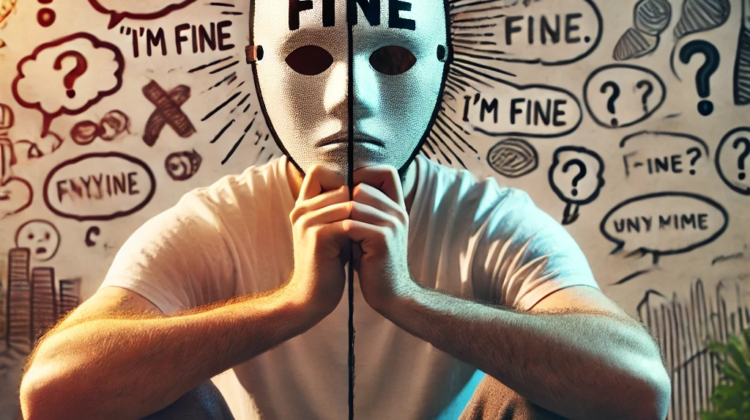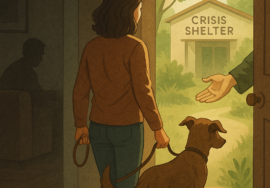
The Day I Realized “Fine” Isn’t a Feeling: The Mask of Emotional Neutrality
I usually focus on informative content here, but today, I wanted to share something more personal. This isn’t your typical blog post—it’s more of a candid opinion piece. I believe mental health deserves as much openness as any other topic, and I hope this resonates with you in a meaningful way. Recently, I was grabbing coffee with a friend when they asked, “How are you?” Without thinking, I replied, “I’m fine.” The conversation moved on, but something nagged at me. Was I actually fine? What does “fine” even mean?
It hit me that “fine” had become my go-to response—a polite deflection that prevented any real discussion about how I was truly feeling. I started noticing how often others did the same. It was like we all silently agreed to keep things surface-level, avoiding any depth that might reveal vulnerability.
The Culture of “Fine”
In a world that’s more connected than ever, why do we feel so disconnected from genuine conversations about our well-being? The stigma around discussing mental health plays a big role. Admitting that we’re stressed, anxious, or unhappy can feel like we’re burdening others or exposing weakness.
My Experiment with Honesty
I decided to challenge this norm. For a week, every time someone asked how I was doing, I gave an honest answer:
- “Actually, I’ve been feeling pretty overwhelmed at work.”
- “I’m excited because I started a new hobby!”
- “I’ve been a bit down lately, but I’m working through it.”
The reactions were surprising. Some people were taken aback, not expecting more than a “fine.” Others opened up in return, sharing their own feelings and creating a deeper connection.
What I Learned
- Authenticity Invites Connection: Being open encouraged others to share as well, leading to more meaningful interactions.
- It’s Okay Not to Be Okay: Acknowledging my feelings was liberating and helped reduce the internal pressure to appear perfect.
- Small Steps Break Stigmas: Normalizing these conversations can make it easier for everyone to talk about mental health without fear of judgment.
Why It Matters
Mental health is just as important as physical health, but we often treat it like an afterthought. By perpetually saying we’re “fine,” we may be neglecting issues that need attention. Open conversations can be the first step toward healing—not just for ourselves but for others who might be struggling in silence.
Your Turn
Have you ever caught yourself defaulting to “I’m fine” when you weren’t? What happened when you decided to share your true feelings?
Let’s start breaking down the barriers, one honest conversation at a time.


 Beyond Yes and No: How Building a Consent Culture Can Transform Our Communities
Beyond Yes and No: How Building a Consent Culture Can Transform Our Communities





